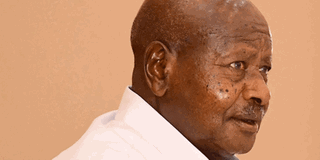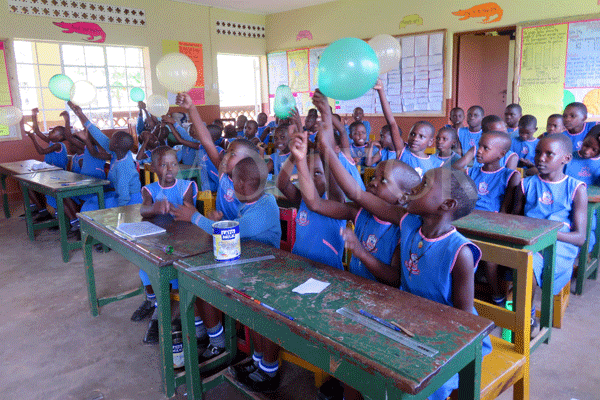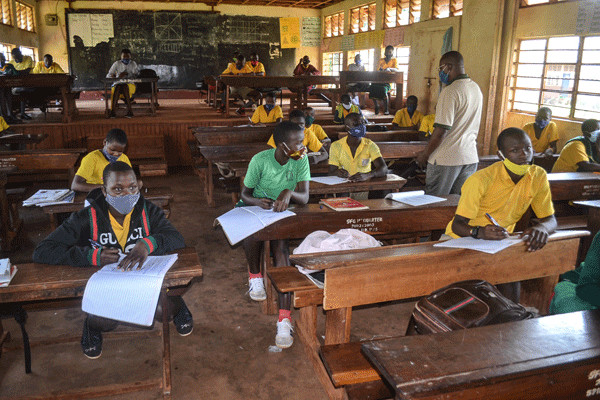Prime
Museveni’s tough choices in address

President Museveni. PHOTO/FILE
What you need to know:
- Uganda Medical Association President Dr Samuel Oledo says with less than 2,000 doctors, medical workers will be overwhelmed if the entire country is infected.
President Museveni is today expected to present the final position of government on the planned January 2022 full reopening of the economy and schools.
The President’s end of year address comes a day after the Ministry of Health reported the country’s Covid-19 positivity rate at 22 percent, the highest since the outbreak last year.
In October, while addressing the country, Mr Museveni promised that come January 2022, “Even if you don’t come out for vaccination, we will open the schools and the economy,” adding that “If anything goes wrong, the moral responsibility is yours.”
By the time the President promised full reopening of the economy, the Omicron had not emerged and positivity rate was below five percent. The Covid-19 lull gave an indication that the pandemic was under control. But things started to change five days after Ministry of Health confirmed Omicron, a highly transmissible variant, in the country.
Realising that daily cases were increasing, the National Covid-19 Taskforce led by Prime Minister Robinah Nabbanja met the President on Monday and reportedly recommended delayed reopening of the economy and schools in the wake of surging Covid-19 infections caused by Omicron variant.
But the President is not obliged to follow the taskforce recommendations. He is free to make his own decisions on the best option for containing the pandemic. Sources close to State House believe the President will today announce new Covid-19 measures to contain the Omicron variant.
Talking about the puzzle today’s Covid-19 address must solve, Dr Celestine Barigye, the Mbarara Regional Referral Hospital director, warned that “Government should be cautious in the [planned full] reopening of economy because the spread in public transport and functions that expose more people, will create more infections.”
Officials at the Health Ministry and Uganda Medical Association (UMA) have expressed concerns about a likely increase in hospitalisation from more than 1,000 new cases reported each day. On December 28, at least 1,800 people tested positive for coronavirus and some hospitals have reported increased hospitalisation.
A total of 69 Covid-19 patients are in hospitals across the country, according to the Ministry of Health.
Mulago has 40 patients, out of which 28 are in HDU and 12 in the ICU.
In the face of rising infections in the country, Ugandans sampled from across the four regions want the President to reopen the entire economy at once and allow all children to go back to school, saying the Covid-19 restrictions have greatly devastated their livelihood and yet they can live with the contagion.
In particular, traders, transport operators, entertainment sector players and the working-class want the government to remove curfew time which they say has reduced working hours, killed jobs and crippled the night economy.
Dr Samuel Oledo, the President of Uganda Medical Association (UMA), told this publication that government should be very cautious while reopening the economy. He asked government to step up the enforcement of preventive measures and maintain lockdown on bars.
“If we are saying we want to reduce the spread of the coronavirus then you cannot reopen bars. How can a drunk person observe SOPs? It doesn’t make sense,” he said.
“So if the alcoholic contracts Covid-19 from a bar, takes it home, infects the entire family; it will be a catastrophic event. And his child who is a day scholar will also infect the boda boda person taking him/her to school and other learners and the teachers,” he added.
Schools, bars and entertainment sectors are some of the most affected by the Covid-19 lockdowns since last year. The government first closed schools during a lockdown in March 2020, days before Uganda registered its index Covid-19 case, and again during a second lockdown on June 18, imposed to break a devastating pandemic second wave.
Tertiary institutions and universities have been allowed to reopen gradually late this year but pre-primary pupils have never stepped foot in class since the first closure in March 2020.
President Museveni kept the bars and entertainment sector under lockdown since 2020, citing the higher risk of spreading the coronavirus among their clients.
The virus has so far infected 139,079 people and killed 3,291 since the outbreak in the country last year.
Sources at the National Covid-19 Taskforce told this publication that in the meeting with the President on Monday, they recommended delayed reopening of night economy like bars.
“The plan to reopen bars will be reviewed after two weeks following the sharp rise in cases. It is a risky segment. But the President will give the final position tomorrow [today],” one of the sources said.
But Mr Rugiirwa Katatumba, the chairman of Bar, Club and Entertainment Owners Association, told this newspaper yesterday that they are “disappointed” about the recommendation from scientists to delay their reopening. He said they have been disproportionately affected by the pandemic due to endless lockdown.

A Uganda People’s Defence Forces (UPDF) soldier receives a Covid-19 vaccine during the launch of the exercise at Senior Officer’s Diagnositic Centre in Mbuya, Kampala on March 18. PHOTO/FILE
But Dr Emmanuel Tugainayo, the director of Mbale Regional Referral Hospital, said the government should reopen schools as planned and find a way of reopening the economy fully to relieve Ugandans from Covid-induced poverty.
He, however, said the full reopening will only be feasible if the vaccination coverage is increased from the existing.
“Because of the resurgence, we are seeing rising hospitalisation but the two deaths we have registered since the resurgence started were among the unvaccinated,” he said. “Previously we would have around two Covid-19 patients in hospital but right now we have eight patients but most of them have mild disease.”
Dr Celestine Barigye, the director of Mabarara Regional Referral Hospital, and Dr Moses Muwanga, the Entebbe Regional Referral Hospital director, both said they are registering increasing hospitalisation. They didn’t give specifics.
But Dr Barigye said they are registering higher numbers of Covid-19 infections among children and young people than was witnessed in the previous wave.
Dr Oledo asked government to take urgent actions to curb transmissions and warned that “If the entire country is infected, we will not be able to manage as doctors. We are less than 2,000 doctors employed by the government.”
Statistics from the Ministry of Health indicate that out of 32.6 million doses the government has acquired through donations and direct procurement, 9.8 million Ugandans have received the first dose and 1.5m have received their second dose.
Government is racing to inoculate at least 22 million people to effectively contain the pandemic. But emerging research evidence is also suggesting that the Omicron variant reduces protection from vaccines.
The call for cautious reopening is getting louder. Dr Andrew Kambugu, the director of Infectious Disease Institute of Makerere University said Omicron should be taken lightly because much is still unknown about it.
“The WHO has also sent out a message that we should be very careful with this Omicron because it is an emerging picture and we may not know about everything. I think we need to strengthen SOPs for infection control,” he said.
“The available evidence from South Africa suggests that Omicron may reduce the spread of the Delta variant which causes more severe disease but we still don’t know whether it will be the same case here.”
He asked government to expedite the provision of booster doses to the elderly and those with comorbidities to address the tragedy from Omicron.
“The virus spreads through well-known mechanisms which I believe everyone now knows,” Dr Kambugu said.
Dr Daniel Kyabayinze, the director of Public Health at the Ministry of Health, said the quick way to reverse the surge is to minimise contact with those who are sick and ensure sick people isolate and get treatment until they are healed.
“We can no longer afford another lockdown because when you have such infections rate, the best way is to do a regional lockdown or cut off the area where the infection is to stop it,” he said.
He said the other way to curb the resurgence is to quarantine people coming into the country through the airport.
Most of the Omicron cases were reportedly imported into the country through the airport.
Dr Misaki Wayengera, the head of the government scientific advisory committee told this newspaper that government should find a way of testing learners when schools reopen to allow for fast evacuation of cases. He said mitigating infections in schools will be difficult but with the discipline and commitment of schools to enforce and report cases in time, the situation will be handled.
Experts’ recommendations
1. Bars and entertainment sector remain closed
2. Don’t lift curfew time yet
3. Maintain the current carrying capacity of public transport (50 percent capacity) and places of worship (200 worshippers)
4. Cancel weddings, birthday parties and big events
5. Increase enforcement of SOPs in schools, public places and burial places
6. Test learners with symptoms and evacuate cases in schools timely
7. Enforce vaccination mandates




